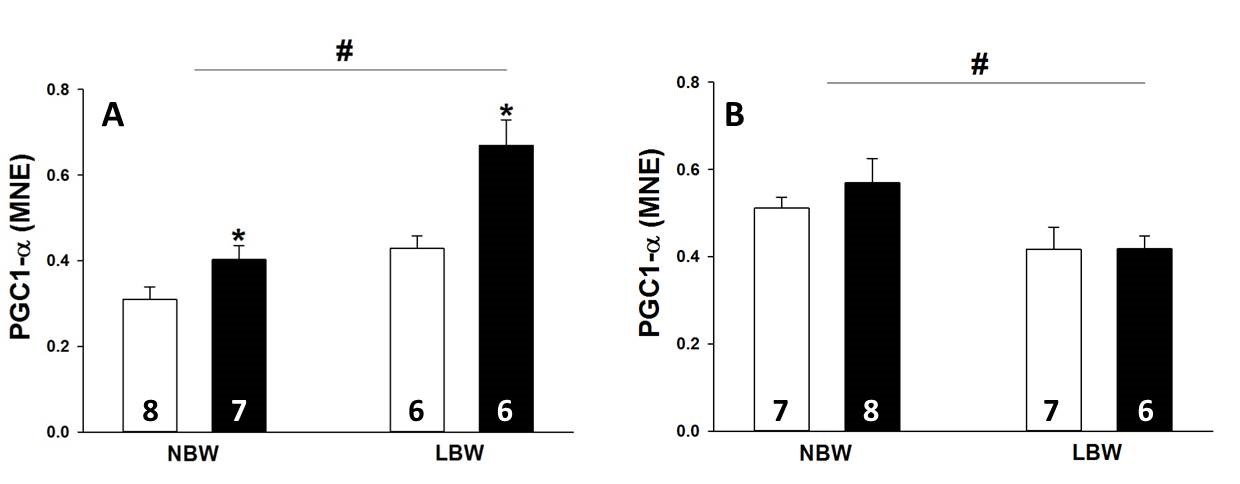
Introduction: Low birth weight (LBW)/intrauterine growth restriction (IUGR) as a result of an adverse in utero environment is a risk factor for the onset of cardiovascular disease (CVD) in adult life. These LBW offspring experience accelerated catch up growth after birth and exhibit metabolic inflexibility when consuming a high saturated fat and high sugar Western diet (WD), which is abundant in our society today. We assessed the independent and possibly additive effects of placental insufficiency induced LBW and a postnatal WD on the heart.
Methods: LBW was induced by uterine artery ablation in guinea pigs at ∼32 days gestation (term=68 days). Resulting male and female pups were classified into normal birth weight (NBW; >85g), or LBW (<85g) groups, and weaned onto either a control diet (CD) or WD. Left ventricle tissue samples were collected at 150 days after birth and qRT-PCR was used to determine the mRNA expression of key cardiac growth and metabolic genes. There was an effect of sex (3 way ANOVA) and thus, data was split by sex and a 2 way ANOVA performed.
Results: LBW-WD males had increased cardiac IGF-2 mRNA expression and WD males had increased IGF-2R mRNA expression independent of birth weight. In addition, MHC-α and MMP-2 mRNA expression was also increased in WD males, and effect greater in LBW-WD males. WD fed males also displayed increased CPT-1β and PGC-1α (Figure) mRNA expression and again these effects were more pronounced in LBW-WD. The figure shows differential effects of diet and birth weight on the mRNA expression of PGC1-α in males (A) and females (B); open bars, CD; black bars, WD; *, diet effect; #, birth weight effect. Basal glucose transporter GLUT-1 mRNA expression was decreased in LBW-WD males, but not in NBW-CD or WD males. Interestingly, there was no effect of diet on the expression of these molecules in females; however, LBW females had decreased expression of both CPT-1β and PGC-1α irrespective of diet.
Conclusions: There appears to be a sexual dimorphism between the mRNA expression changes in cardiac growth and metabolic pathways as a result of both birth weight and postnatal WD. WD changes the expression of signalling molecules in males and LBW may enhance these effects. The lack of changes in the female may suggest a detrimental failure to mount an appropriate metabolic response to the WD.
